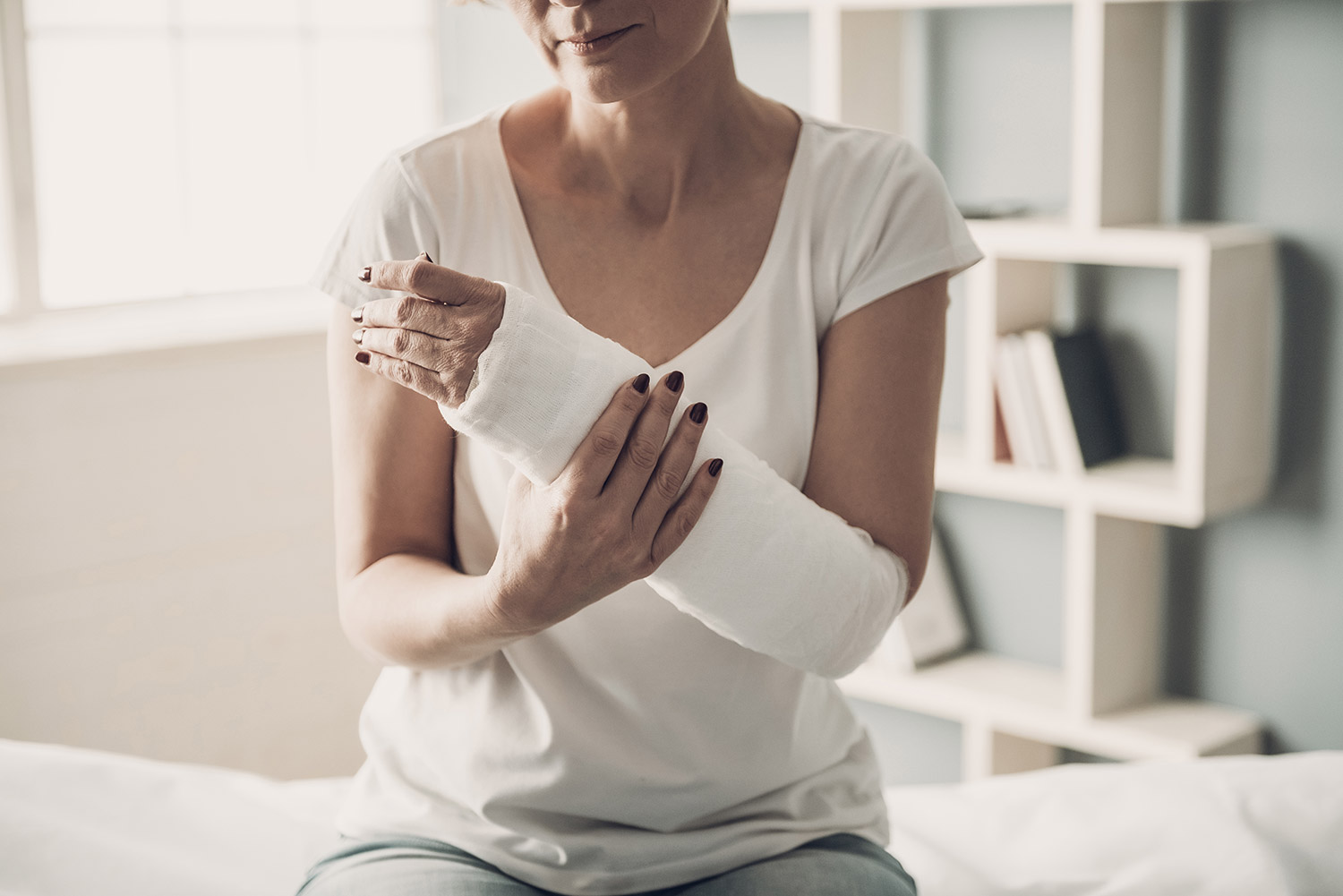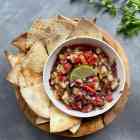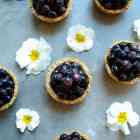The Top 5 Brain Food Tips to Help Prevent Injuries

Your mental health game is on point: high energy, stable mood, and an overall sense of balance. And then you get an injury. A tweaked back, a blown out knee, a sprained ankle, a broken arm (or God forbid, a head injury). The doctor says “It’ll take 6-8 weeks (or more) to heal. So rest up and take it easy.” Which you do. And it does.
But, even as your injury heals, you notice something else. Your mental health starts to slide. You start feeling depressed, anxious, fatigued, and everyday stressors start to get harder and harder to cope with. What’s the deal? Injuries suck, for sure, but shouldn’t you be feeling better, not worse, as your injury heals?
Before I dive into my top 5 brain food tips to prevent injuries, I want to explain the brain and mental health connection to injuries. This is important, so stick with me.
Injury’s Sidekick: Inflammation
Did you know that imbalances in your musculoskeletal system, such as injuries, can be related to your brain and mental health?
Of course, it’s depressing to be stuck on the couch after training for months (or years) for a big race. And of course, it is anxiety-inducing to be off work due to an injury. That piece is crystal clear, thank you very much, for anyone who’s gone through it. But does it go beyond that, like on a physical and biochemical level?
Neuro-inflammation is a major risk factor for depression, anxiety, inability to cope with stress as well as dementia including Alzheimer’s disease.
It turns out that inflammation, which is the side-kick to any injury, can spread. Yes, spread! Once it reaches your nervous system, we give it a new name: neuro-inflammation. And this type of inflammation is a major risk factor for depression, anxiety, inability to cope with stress as well as dementia including Alzheimer’s disease.
Clients come to us for all sorts of brain and mental health symptoms and conditions and sometimes, upon digging deep to get at a potential root cause, we find either a recent or old injury (even if healed) in our clients’ lives. And sometimes that can be driving their mental health concerns. We immediately pull out our referral guide and send them to our colleagues in physiotherapy, chiropractics, massage, etc. for an assessment (and continuing treatment, if needed). Then I design a hardcore anti-inflammatory nutrition program to calm inflammation in my client’s body AND brain.
We know nutrition can help aid in the recovery of injuries by fighting inflammation. But is there then a role for nutrition to PREVENT a future injury? There actually is. And it’s pretty cool what the science is saying and what I’m seeing anecdotally with clients.
Are You Distracted by Hunger?
Employees’ brains are undoubtedly their greatest tools and largest assets. Yet many employers underestimate the importance of promoting brain health in the workplace.
Science says that accidents and incidents that occur during the first half of the day at work are related to whether an employee ate breakfast or not.
Organizations try so hard to reduce lost-time accidents because they severely affect the bottom line. But what they don’t realize is that accidents, and the subsequent absenteeism from work and/or sub-par performance, are so connected to brain and mental health. And this is, in part, related to nutrition. For example, science says that accidents and incidents that occur during the first half of the day at work are related to whether an employee ate breakfast or not. And accident rates spike in the hour before lunch, when employees are most distracted by hunger. Woah, right!?! We know that missing breakfast will cause low blood sugar, and that comes with a host of brain and mental health effects like inability to think, poor memory, lack of concentration and anxiety. This notorious “hangry” scenario sounds like a recipe for accidents to me.
This isn’t even looking at food quality yet, just basic quantity: eating something, anything, in the morning can cut down your chances of having an accident at work.
Food Quantity vs. Food Quality
As a NeuroTritionist, food quality does matter to me. After we get clients eating SOMETHING in the morning, we next work on increasing food quality. For example, did you know that some injuries, like many sports-related ones, may be a sign of nutritional imbalance or deficiency? Yup! This is not related to how much food you’re eating, but to the quality of food.
Many of our sporty clients come to us following “rules” that focus on numbers rather than nutrients and on quantities rather than quality. They were taught to focus only on quantities of carbs, fats, proteins and calories, instead of also looking at the quality of the foods to ensure an abundance of micronutrients (i.e. your vitamins and minerals needed to prevent common injuries, keep scrolling to learn which ones).
Top 5 Brain Food Tips to Help Prevent Injuries
Everyone is so wonderfully unique, and any nutrition program will have to be custom tailored. But I want to share my top 5 tips that are always part of our NeuroTrition Rx to help prevent injuries in our clients.
1. Get off the blood sugar rollercoaster.
Please eat breakfast (even if a few bites or sips of something) within one hour of waking to “break the fast” (that’s where the word breakfast comes from). This is important to prevent your blood sugar from dipping further into the hangry territory that it goes into during the night. This will help keep your energy and mood nice and steady, and help you think, concentrate and perform better in the first part of your day.
Once you’ve mastered having something for breakfast, shift your focus to making sure you choose real whole foods as often as you can (try to skip the processed, refined packaged foods). Always have a carb with a healthy fat and/or protein to keep that blood sugar in a healthy range.
PRO TIP: When I tell you to have a “carb” I’m talking about “complex carbs” like oatmeal, quinoa, sweet potatoes and sprouted grain bread, to name a few. Think egg and avocado toast or oatmeal topped with nuts and seeds. Or what about our Sweet Potato Pancake recipe? Or if smoothies are more your style, we’ve got a great blood sugar balancing recipe, here. Once you’ve mastered breakfast, try these tricks for lunch!
2. Stop already with the skinny body and brain!
Your body and brain NEED fat, the right kind of fat! When it comes to inflammation, omega-3 fatty acids EPA and DHA are your best bet for calming the inflammatory cascade that can course through our body, and up to our brain, after an injury. If you can get (and then keep) your baseline inflammation as low as possible, you might be able to help prevent another injury - and the mental health symptoms that can ensue.
EPA and DHA are found in some fish like wild salmon, black cod, halibut, trout, anchovy, sardine and mackerel. If you’re allergic to fish or are vegan, you can get EPA and DHA from algae - or you can get the “parent” omega-3 fat ALA instead. Opt for walnuts, hemp, chia, flax and pumpkin seeds as good sources of ALA. Your body can make EPA and DHA from the ALA you consume, but we cannot (and should not) always depend on this conversion because science suggests that up to 80% of us can’t make the conversion properly! ALA, thus, appears to be less clinically effective than EPA and DHA omega-3s, derived from fish or algae. So consider supplementing with a good-quality fish oil or algae oil to keep your brain power up and inflammation down.
3. Get smart about collagen (vs. protein powder).
Protein is needed to repair and build new muscle and it’s key for immunity and brain health. Getting enough in our part of the world is typically not an issue, but quality sure is!
One thing I’m seeing a lot of confusion over these days is collagen, and whether it can replace a protein powder. Collagen is the most abundant protein in our body. It improves recovery from exercise, enhances bone mineral density and helps build new muscle, and is just great for overall health. It declines with age - increasing our susceptibility to injury. However, collagen is not a complete protein: it is low in leucine (needed for fat loss due to its ketogenic effects) and tryptophan (the precursor to serotonin and melatonin, which play a role in mood and sleep). So, a sustainably sourced collagen can be a good idea to ward off injury, however, it is not a replacement for a high-quality protein powder (especially if you’re protein deficient due to a medical condition).
In terms of what to look for in a protein powder, I always advise to look for the following:
- Plant-based, clean burning protein like quinoa, brown rice and coconut.
- Fermented and sprouted ideally.
- ~20 g protein per serving.
- Oh, and it’s gotta taste good!
4. Really nourish your gut garden.
A highly stressed and inflamed body are more susceptible to injury. Science tells us that our microbiome (I’m talking about your gut bugs!) can help regulate stress by activating the HPA (that’s hypothalamic-pituitary-adrenal) axis and its release of chemicals. Furthermore, our friendly gut bugs have a role in the maturation, morphology and function of microglia (special brain cells that aren’t neurons but are their little helpers), which control neuro-inflammation.
You can grow a thriving gut garden with lots of probiotic-rich foods and prebiotics (food for your gut bugs), and a good-quality probiotic supplement.
5. Be a triple threat with this bone, muscle and brain trio.
Load your plate with whole food sources of calcium any chance you can get, as it is an absolute must for bone health and the prevention of stress fractures (it’s also a brainy nutrient, helping our brain cells talk to one another).
PRO TIP: Calcium needs its little buddy magnesium (lovingly called the “anti-anxiety mineral”) to be properly assimilated. For some reason, our bodies don’t naturally love calcium, unless it is with its friend, magnesium. We recommend a 2:1 ratio of calcium:magnesium, if you’re going to supplement. Another nutrient needed for calcium absorption is vitamin D (also essential for your thyroid to build its hormones T3 and T4).
But before you reach for a gallon of milk to prevent a risk of an injury, know that your calcium, magnesium and vitamin D requirements can be met with non-dairy sources including lots of green leafy vegetables, raw nuts and seeds, and cold-water fish (like those listed above). Because if you’re sensitive to the lactose and/or casein in dairy (and I am seeing more and more people who are), it can actually promote inflammation in your body - and the intent here is to lower inflammation. Throw some sunshine into the mix for a hit of Vitamin D, and you’re set!
Start incorporating these 5 tips into your life, and you will be taking (some) control back over getting hurt by helping to prevent injuries. Full disclosure: these will NOT help you if you are super clumsy like me and were born with two left feet (but hey nothing, including nutrition, can help everything)!
- References
-
- Angeline, M.E., Gee, A.O., Shindle, M., Warren, R.F., Rodeo, S.A. (2013). The effects of vitamin D deficiency in athletes. Am J Sports Med, 41(2):461-464.
- Chaplin, K., Smith, A.P. (2011). Breakfast and snacks: associations with cognitive failures, minor injuries, accidents and stress. Nutrients, 3(5):515-528.
- Goolsby, M.A., Boniquit, N. (2017). Bone Health in Athletes. Sports Health, 9(2),108-117.
- Heiss, C.N., Olofsson, L.E. (2019). The role of the gut microbiota in development, function and disorders of the central nervous system and the enteric nervous system. J Neuroendocrinol, 31(5):e12684.
- Moran, D.S., McClung, J.P., Kohen, T., Lieberman, H.R. (2013). Vitamin d and physical performance. Sports Med, 43(7):601-611.








